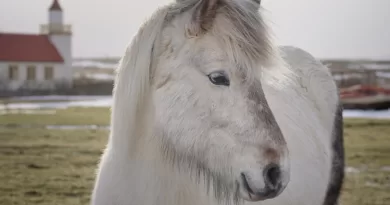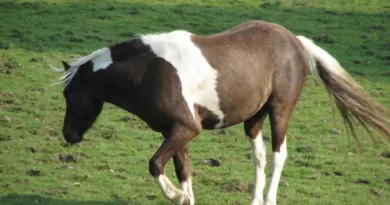Comprehensive Guide: How Long Can a Horse Live with DSLD
1. Introduction
How Long Can a Horse Live with DSLD: Horses are magnificent creatures, known for their strength, agility, and grace. But like all living beings, they can face health challenges, including Degenerative Suspensory Ligament Desmitis (DSLD). In this comprehensive guide, we will delve into how long a horse can live with DSLD and provide insights into managing this condition.
2. Understanding DSLD in Horses
DSLD, or Degenerative Suspensory Ligament Desmitis, is a progressive and degenerative disease that primarily affects a horse’s suspensory ligaments. These ligaments play a crucial role in supporting a horse’s weight and movement. DSLD is a painful condition, and it can significantly impact a horse’s quality of life.
What Causes DSLD?
The exact cause of DSLD is still not fully understood, but genetics may play a role. It’s believed to be more common in certain breeds, such as the Peruvian Paso and Paso Fino.
DSLD Progression
DSLD starts subtly, often with a slight lameness or gait abnormality. Over time, it progresses, leading to severe pain and lameness. The suspensory ligaments become thickened, and the condition may affect multiple limbs.
3. DSLD Symptoms and Diagnosis
Recognizing the signs of DSLD is crucial for early intervention and management.
Common Symptoms
- Lameness: The horse may appear lame, especially when walking on hard surfaces.
- Swelling: Affected legs may exhibit swelling.
- Abnormal Gait: The horse may have an irregular gait.
- Pain: They might be in evident pain, particularly during physical activity.
Diagnosis
DSLD can be diagnosed through a combination of clinical examination, ultrasound, and sometimes a biopsy to confirm the condition.
4. DSLD Management and Care
While there’s no cure for DSLD, there are steps horse owners can take to improve their horse’s quality of life and potentially extend their lifespan.
Supportive Care
- Pain Management: Non-steroidal anti-inflammatory drugs (NSAIDs) can help manage pain.
- Proper Foot Care: Ensuring the horse has proper hoof care can alleviate discomfort.
- Weight Management: Maintaining a healthy weight can reduce stress on the ligaments.
Physiotherapy and Exercise
Physical therapy and controlled exercise can help maintain muscle tone and slow the progression of DSLD. Consult a veterinarian for a tailored exercise plan.
5. Extending a Horse’s Life with DSLD
The lifespan of a horse with DSLD can vary widely depending on various factors, including the horse’s overall health, the severity of DSLD, and the care it receives. On average, horses with DSLD may live for several years after diagnosis. However, some may live longer with the right management and care -How Long Can a Horse Live with DSLD.
6. Frequently Asked Questions
Q1: Can DSLD be cured?
A1: Unfortunately, DSLD cannot be cured, but it can be managed with proper care.
Q2: Can a horse with DSLD still be ridden?
A2: Riding a horse with DSLD is generally discouraged as it can worsen the condition.
Q3: Are there any alternative treatments for DSLD?
A3: Some alternative therapies like acupuncture or chiropractic care may help manage pain and improve a horse’s overall comfort. Consult with a veterinarian before pursuing these options.
See Also: How long do horses live? Amazing Facts About Horses’ Life
8. Additional Tips for DSLD Horse Owners
Caring for a horse with DSLD can be emotionally and physically demanding. Here are some additional tips to help you provide the best care for your beloved equine companion:
A. Regular Veterinary Checkups
Frequent checkups with a qualified veterinarian are crucial. These professionals can monitor your horse’s condition, adjust their treatment plan as needed, and provide guidance on managing pain and discomfort.
B. Adequate Shelter and Comfort
Ensure your horse has access to a comfortable and dry shelter, especially during inclement weather. Comfortable bedding and appropriate shelter can help alleviate stress on their joints.
C. Balanced Diet
Consult with a veterinarian or equine nutritionist to develop a balanced diet that supports your horse’s health and well-being. Proper nutrition can aid in managing their weight and overall health.
D. Emotional Support
Don’t underestimate the emotional bond you share with your horse. Spending time with your horse, offering gentle affection, and maintaining a positive environment can help reduce their stress levels.
9. Future Research and Hope
The field of equine medicine and DSLD research is continually evolving. While there’s no cure yet, advancements in treatment methods and a deeper understanding of the condition provide hope for horse owners. Stay informed about the latest developments in DSLD management and always consult with your veterinarian for the most current guidance -How Long Can a Horse Live with DSLD.
10. Reaching Out for Support and Community
Caring for a horse with DSLD can be a demanding journey, and you don’t have to go through it alone. There are online forums, social media groups, and local equine communities where you can connect with others facing similar challenges. Sharing experiences, insights, and emotional support can be immensely helpful during this time.
A. Online Forums and Support Groups
Numerous online forums and social media groups are dedicated to equine health and DSLD. Joining these communities can provide you with a wealth of information, emotional support, and a sense of camaraderie.
B. Local Equine Enthusiast Groups
Explore your local area for equine enthusiast gatherings, clubs, or events. These groups often hold meetings, workshops, and events that can help you connect with experienced horse owners and professionals.
11. The Importance of Quality of Life
As a responsible horse owner, your primary goal is to ensure the best possible quality of life for your equine friend. Quality of life indicators include your horse’s comfort, freedom from pain, and the ability to express normal behaviors.
DSLD and End-of-Life Decisions
While it’s challenging to contemplate, there may come a time when making difficult decisions about your horse’s future becomes necessary. Consult your veterinarian to assess your horse’s quality of life. They can provide guidance on end-of-life decisions, ensuring your horse’s comfort and dignity.
12. Legal Considerations
In some regions, there may be legal considerations for horse owners dealing with DSLD. It’s essential to be aware of local laws and regulations regarding animal welfare, especially when making decisions about the care and well-being of your horse.
13. Seeking Professional Guidance
Handling DSLD can be emotionally taxing. If you ever find yourself overwhelmed, don’t hesitate to seek professional counseling or support. Mental health is an essential component of caring for your horse effectively.
15. References and Further Reading
To continue your education on DSLD in horses and related topics, here are some recommended resources:
A. Books
- “Horse Owner’s Veterinary Handbook” by Thomas Gore
- “Equine Surgery” by Jorg A. Auer and John A. Stick
B. Research Papers
- “Histopathological Findings in the Suspensory Ligament of Horses with Clinical Signs of Degenerative Suspensory Ligament Desmitis” – A. de Oliveira, et al. (Journal of Veterinary Internal Medicine)
These resources offer in-depth information on equine health, DSLD research, and various aspects of horse care.
16. Stay Informed and Advocate for Equine Health
Horses are more than just pets; they’re companions, athletes, and beloved family members. As a responsible horse owner, it’s crucial to stay informed about their health and advocate for their well-being.
By educating yourself and others about DSLD, sharing your experiences, and supporting research, you can contribute to the broader equine community’s knowledge and work towards better outcomes for horses with DSLD.
17. Your Feedback Matters
Your feedback and questions are invaluable. If you have any suggestions, inquiries, or topics you’d like to see covered in future articles, please don’t hesitate to reach out. Your input helps in creating content that addresses your specific needs and interests.
Enjoyed this article? You May Also Like:
- Learn in 5 minutes about Cryotherapy for Horses
- Penicillin in Horses; Impeccable Guide in 10 minutes
- Excede Antibiotic For Horses, Fantastic Facts in 5 minutes
- The Science of Oxytocin in Horses: How This Hormone Influences Equine Behavior
- Can Horses Swim? Everything You Need To Know About Horse Swimming






